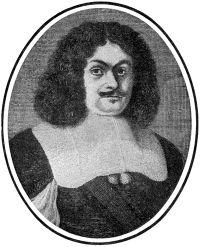Gryphius, Andreas, was born Oct. 2, 1616, at Gross-Glogau, in Silesia. He was educated at the School at Fraustadt, Silesia, 1631-34, and the Gymnasium at Danzig, 1634-36. After being for some time family tutor in the house of Baron Georg von Schönborn, near Fraustadt (who crowned him as a poet in 1637), he was forced by the Counter Reformation in Silesia to find refuge in Holland. He matriculated as a student at Leyden in 1638, and was afterwards till 1643 University Lecturer. Thereafter he accompanied the son of a rich Stettin burgess and two Pomeranian noblemen in a tour through France, Italy, Holland, and South Germany, and then, in the end of 1647, settled in Fraustadt. In 1650 he was appointed syndicus of the principality of Glogau, and while attending one of the meetings of the diet at Glogau, was struck by paralysis and died in the assembly house, July 16, 1664.
Gryphius ranks as one of the principal poets of Silesia. The troublous events of his life, however, cast a gloom over most that he wrote, and his hymns especially are sombre in character. He was the first writer of German tragedies (Leo the Armenian; The Murdered Majesty; or, Charles Stuart of Great Britain, &c.) and one of the earliest writers of German comedy (Herr Peter Squenz; Horribilicribrifax; Die geliebte Domrose, an excellent little comedy in Silesian dialect, &c).
Gryphius had begun writing sonnets about 1637, and his Son-und Feyrtage Sonnete were published at Leyden, 1639 [Berlin]; followed by his Sonnete, Erste Buch, 1643 [Berlin]. The first (pirated) edition of his collected poems appeared as his Teutsche Reimgedichte, Frankfurt am Main, 1650 [Berlin], and the first authorised edition as his Teutscher Gedichte, Erster Theil, Breslau, 1657 [Berlin], Those translated into English are:—
i. Als der betrübte Tag zu Ende kommen. Entombment of Christ. No. 19 in Book iv. of his Odes (1657, p. 40), in 13 st. Translated as, "When that so troublous day was now concluded," as No. 167 in pt. i. of the Moravian Hymn Book, 1754.
ii. Die Herrlichkeit der Erden. For the Dying. His best hymn. No. 9 in Book i. of his Odes (1650, p. 99; not in 1643), in 15 st., entitled "Vanitas! vanitatum vanitas." The translations are: (1) "Earth's boasted joys and splendour," by Dr. H. Mills, 1845. (2) "All glories of this earth decay” by Miss Winkworth, 1369, p. 177.
iii. In meiner ersten Blüth. God is near. No. 36 in Book iv. of his Sonnets (1657, p. 116; not in 1643), entitled "Andreas Gryphius on his Sunday and Festival Sonnetts." Translated as, "In life's fair Spring," by Miss Winkworth, 1869, p. 179.
iv. Je mehr wir Jahre zählen. New Year. No. 9 in Book iii. of his Odes (1657, p. 79), in 8 st. Translated as, "So many years of living," by N. L. Frothingham, 1870, p. 181 (from the recast "Wie viel wir"), in the Berlin Gesang-Buch, 1829, No. 835.
Another hymn has been frequently ascribed to Andreas Gryphius, but we have failed to find it either in his works or in the works of Christian Grypbius. It is:—
v. Es ist vollbracht! Gottlob es ist vollbracht. For the Dying. In the Vollständiges Hauss- und Kirchen Gesang-Buch, 9th ed., Breslau, 1726, No. 304, in 7 st. The translations are: (1) "It is finished! finished! yea," by Miss Dunn, 1857, p. 119. (2) "It is complete. My God, I thank Thy care," by G. Moultrie, in his Espousals of Saint Dorothea, 1870, p. 65.
-- John Julian, Dictionary of Hymnology (1907)


 My Starred Hymns
My Starred Hymns



